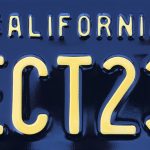
Catching Up on Two Keyword Ad Cases
A couple of keyword ad cases from a couple of months ago. Alsa Refinish LLC v. Walmart Inc., 2024 WL 3914512 (C.D. Cal. July 31, 2024) The trademark owner Alsa sells chrome paint. Walmart doesn’t carry the trademark owners’ items….

Competitor Isn’t Responsible for Google Knowledge Panel’s Contents–International Star Registry v. RGIFTS
This lawsuit involves competitors in the “star registry” niche 🙄. The incumbent is the International Star Registry of Illinois. The challenger is RGIFTS. The incumbent doesn’t like the competition and is clinging to its very descriptive trademarks to try to…

Section 230 Preempts Two More Harassment Lawsuits
Recapping a couple of doomed-from-inception lawsuits. Benedict v. Google LLC, 2024 WL 3427161 (D. Ariz. July 16, 2024) Lance Benedict is a musician. Someone attacked him on the heavy metal website “All That Shreds” (apparently gone now), posting allegedly doctored…

TIL: “Texas Tamale” Is an Enforceable Trademark–Texas Tamale v. CPUSA2
This case hit my alerts because of its discussion about keyword advertising, but first, I have to digest how the court got there. [Reminder: per Wikipedia, a tamale “is a traditional Mesoamerican dish made of masa, a dough made from…

Internal Search Results Aren’t Trademark Infringing–PEM v. Peninsula
This is a case involving a trademark owner and a competitive keyword advertiser. The trademark owner memorably (and ridiculously) characterized the rival as engaging in “keyword conquesting,” a term I encourage you never to use. The court already sent that…
2023 Quick Links: IP, Keyword Ads
* For over a decade, I’ve implored people to stop using the term “Soft IP.” Amanda Levendowski now provides another reason: the term has problematic gender implications. * After II Movie, LLC v. Grande Communications Networks, LLC, 2023 WL 1422808…
512(f) Doesn’t Restrict Competitive Gaming of Search Results–Source Capital v. Barrett Financial
This case involves two “hard money lending” competitors, Source Capital and Barrett. Allegedly on behalf of Barrett, an SEO vendor sent DMCA takedown notices to Google, alleging that Source Capital had copied some of Barrett’s copyrighted material. Source Capital alleges…

When Do Inbound Call Logs Show Consumer Confusion?–Adler v McNeil
This case involves Jim Adler, a/k/a the “Texas Hammer,” a Texas lawyer who has spent $100M+ on advertising to build his brand. The defendants run a call-center service that attracts prospective legal clients and then makes compensated referrals of the…

Court Denies Injunction in Competitive Keyword Ad Lawsuit–Nursing CE Central v. Colibri
This is a competitive keyword advertising lawsuit. The plaintiff has a trademark registration for the “Nursing CE Central” mark for providing continuing education for nurses. [Note: if it’s not obvious, “CE” is an abbreviation for “continuing education.” Just like we…

Competitive Keyword Ad Lawsuit Fails…Despite 236 Potentially Confused Customers–Lerner & Rowe v. Brown Engstrand
This case involves two rival personal injury law firms in Arizona, one of which engaged in competitive keyword advertising against the other. The court dismisses the lawsuit on summary judgment. The court focuses on the likelihood of consumer confusion. The…
